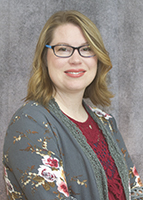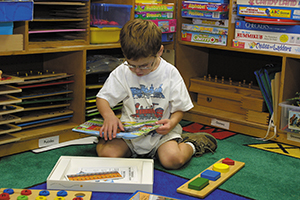The Early Childhood Education curriculum prepares individuals to work with children from birth through eight in diverse learning environments. Students will combine learned theories with practice in actual settings with young children under the supervision of qualified teachers.
Course work includes child growth and development; physical/nutritional needs of children; care and guidance of children; and communication skills with families and children. Students will foster the cognitive/language, physical/motor, social/emotional, and creative development of young children.
Graduates are prepared to plan and implement developmentally appropriate programs in early childhood settings. Employment opportunities include child development and child care programs, preschools, public and private schools, recreational centers, Head Start Programs, and school-age programs.
Early Childhood Education: A program that prepares individuals to promote child development and learning, work with diverse families and children, observe, document and assess to support young children and families, use content knowledge to build meaningful curriculum, and use developmentally effective approaches in collaboration with other early childhood professionals. Potential course work includes instruction in all areas of child development such as emotional/ social/ health/ physical/ language/ communication, approaches to play and learning, working with diverse families, and related observations/ student teaching experiences.
Students can choose between three degree tracks in Early Childhood Education:
- Career-Ready Non-Transfer Track
- Birth through Kindergarten (B-K) Licensure Transfer Track
- Non-teaching Licensure Transfer Track
Early Childhood Education Degree and Certificate Requirements
FOR MORE INFORMATION, CONTACT:

Early Childhood Education Instructor
Department: Faculty
Phone: (252) 246-1272
Email: lcoburn@wilsoncc.edu
Office: B205
